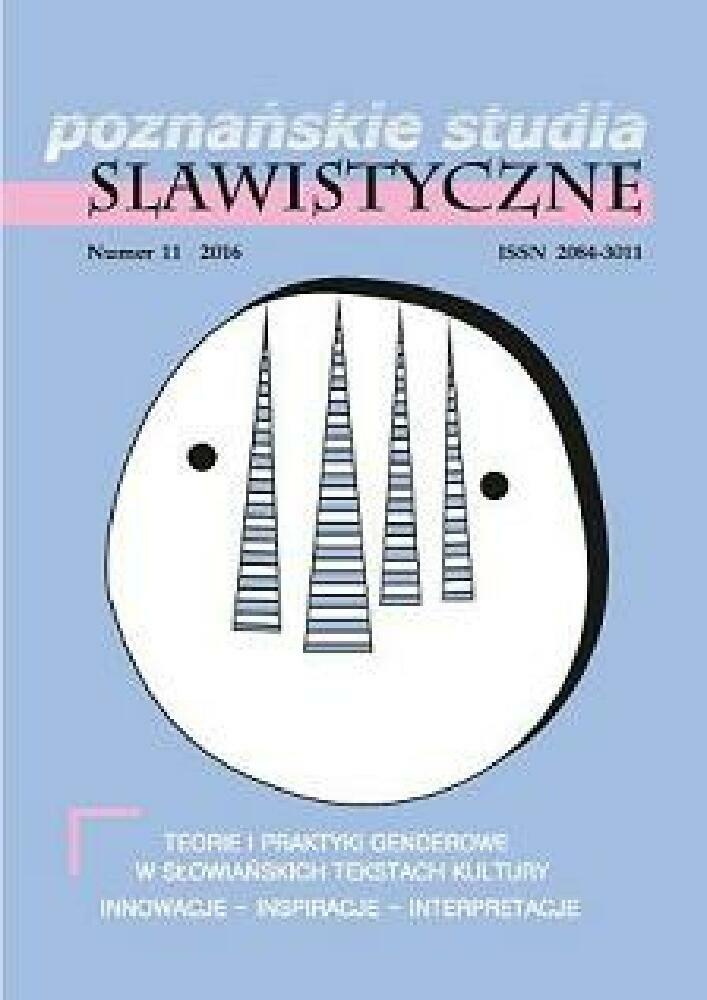Abstract
This paper explores the presence of gender-conscious attitudes in the works of the Czech author Lenka Procházková (born 1951), a member of the dissident movement during the communist regime. It argues that her writings took issue with patriarchal social structures, yet sometimes camouflaged these challenges behind criticism of the totalitarian rule. These expressions, which one might be tempted to consider as feminist from a Western and 21st-century point of view, emerged within East European dissident culture and probably without exposure to Western feminist concepts. Procházková developed a model of an inner exile for dissidents that originated in a canonical work of Czech literature by Božena Němcová and from which one of her female protagonists draws strength. Thus, her works suggest that Western gender theories are limited in their potential to assess East European dissident women’s writing, when they fail to include local literary traditions.Funding
This article was written as part of a research project funded by the Swiss National Science Foundation on the topic of “Canon, Identity, and Literary Learning in Czech Literature Textbooks, 1948–2009”, which ran from 2010–2015 and which was conducted at the Pedagogical Faculty of Charles University, Prague, Czech Republic and at the Department of Slavonic Literature of the University of Zurich, Switzerland.
References
Bolton J., 2012, Worlds of Dissent. Charter 77, the Plastic People of the Universe, and Czech Culture under Communism, Cambridge Mass.
Clement B., 2012, A History of Women in Russia. From Earliest Times to the Present, Bloomington.
Čulik J., 1991, Knihy za ohradou. Česká literatura v exilových nakladatelstvích. 1971– –1989, Prague.
Daskalova K., 2007, How Should We Name the “Women Friendly” Actions of State Socialism?, “Aspasia” no. 1, pp. 214–219.
Flotow L., 1997, Translating Machismo, in: Translation and Gender. Translating in the “Era of Feminism”, Manchester.
Grosz E., 1994, Sexual Difference and the Problem of Essentialism, in: The Essential Difference, ed. N. Schor, E. Weed, Bloomington, pp. 82–97.
Grosz E., 1995, Space, Time, and Perversion. Essays on the Politics of Bodies, New York.
Hašková H., 2011, Female Employment, Population Policy, and Childcare. Early Childhood Education in Post-1945 Czech Society, in: Children, Families, and States. Time Policies of Childcare, Preschool, and Primary Education in Europe, eds. K. Hagemann, K.H. Jarausch, C. Allemann-Ghionda, New York.
Heitlinger A., 1979, Women in Czechoslovakia, in: eadem, Women and State Socialism. Sex Inequality in the Soviet Union and Czechoslovakia, London.
Kantůrková E. (ed.), 1991a, Sešly jsme se v této knize, Prague.
Kantůrková E., 1991b, Zdena Tominová, in: Sešly jsme se v této knize, ed. E. Kantůrková, Prague.
Kantůrková E., 1991c, Jiřina Hrábková, in: Sešly jsme se v této knize, ed. E. Kantůrková, Prague.
Martinková V. et al., 1994, Čítanka 4. Alternativní učebnice pro 4. ročník středních škol, Prague.
Miroiu M., 2007, Communism was a State Patriarchy, not State Feminism, “Aspasia” no. 1, pp. 197–201.
Novikova N., 2007, Communism as a Vision and Practice, “Aspasia” no. 1, pp. 202–206.
Oates-Indruchová L., 2012, The Beauty and the Loser. Cultural Representations of Gender in Late State Socialism, “Signs” no. 37, pp. 357–383.
Pechar J., 1996, Nad knihami a rukopisy, Prague.
Procházková L., 1982a, Růžová dáma, Cologne.
Procházková L., 1982b, Přijed’ ochutnat, Cologne.
Procházková L., 1982c, Přijed’ ochutnat, in: Přijed’ ochutnat, Cologne.
Procházková L., 1984a, Hlídač holubů, Prague.
Procházková L., 1984b, Fešáková žena, in: Hlídač holubů, Prague.
Procházková L., 1989, Smolná kniha, Prague.
Procházková L., 1991, Oční kapky, Brno.
Procházková L., Pekárová I., 2010, Zvonek a pak chorál, Brno.
Procházková L., Vavřín V., 1990, Uklízečka v azylu slov. Rozhovor se spisovatelkou Lenkou Procházkovou, “Občanský deník” no. 54, 4 July, p. 4.
Sokol E., 2005, Vaculík & Procházková: Czech sexual poetics or polemics?, “Slovo a smysl. Časopis pro mezioborové bohemistická studia”, no. 3, pp. 197–201.
Scott H., 1974, Does Socialism Liberate Women? Experiences from Eastern Europe, Boston.
Sůva V., 1991, Eva Kantůrková, in: Sešly jsme se v této knize, ed. E. Kantůrková, Prague.
Věšínová-Kalivodová E., 1998, The Vision of Czech Women. One Eye Open. Gender Roles in Czech Society, Politics, and Culture, “Dialectical Anthropology” no. 23, pp. 361–374.
Zídková L., 2011, Lenka Procházkova. Její literární kariéra, život a dílo – monografická studie, Diplomová práce, Praha.
License
Copyright (c) 2016 Ursula Stohler

This work is licensed under a Creative Commons Attribution-NoDerivatives 4.0 International License.
